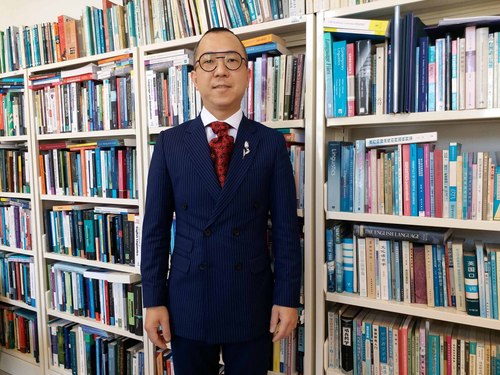 Ronald Fong has published his paper in Studies in Chinese Linguistics
Ronald Fong has published his paper in Studies in Chinese Linguistics
Ronald Fong, an assistant professor from the Department of English, University of Macau (UM), recently published his paper titled ‘Chinese Motion-Directional Construction: A Conceptual and Cognitive Analysis’ in Studies in Chinese Linguistics, one of the most prestigious journals in the fields of linguistics and Chinese language. An international academic publication dedicated to the comparative study of Chinese language and linguistics, the journal provides a platform for research studies of comparative linguistics and dialectal grammar with a comparative approach. Published by De Gruyter, the journal has a long history and has recently shifted its focus to linguistic theory and its relationship to the Chinese language.
This paper applies Parallel Architecture and Cognitive Grammar, two influential linguistic and cognitive models, to the analysis of the Chinese language, arguing that given our everyday experience with the motion of objects in the world, we employ a quite complex construction to express it showing different mental spaces and relations such as subordination in our cognitive system. The article also touches upon language evolution and Universal Grammar, indicating the similarity of the evolutionary paths between the Chinese language and the creole language.
Dr Fong has been working at UM for more than 20 years. His areas of expertise concern a wide range of topics in linguistics, including syntax, sociolinguistics, and the interface between syntax and semantics, particularly in the constructionist models.


